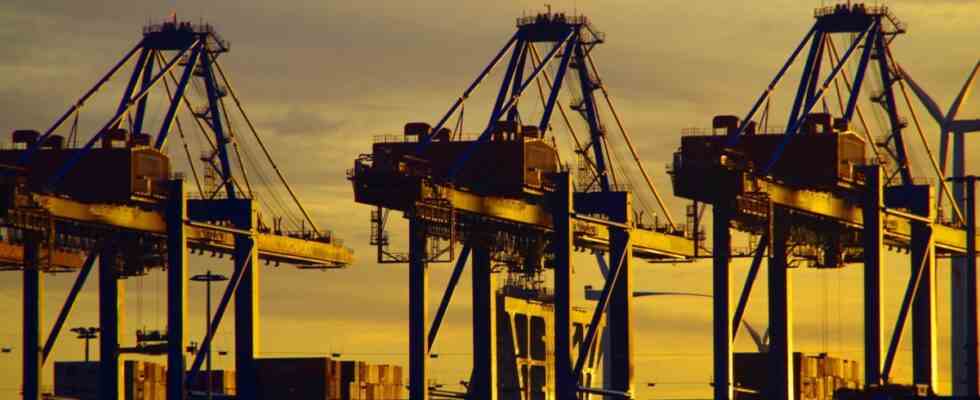Hopefully it’s a wake up call. Germany is one of the western countries whose economy is suffering the most from the consequences of the Ukraine war. That’s what the International Monetary Fund announced. But even before the Russian troops invaded, it was clear that Germany’s economic model was based on dangerous dependencies: the gas came from Russia and economic growth was fueled by exports to China. Both must change.
How risky to naïve it was to put your energy security in Moscow’s hands has now been shown. However, trusting in China as a friendly sales market for German products is also tricky. In any case, the dictatorship in Beijing wants to make its economy less dependent on imports. The aim of this strategy, called “double circulation”, is that, on the contrary, other countries are more dependent on technology from China.
In addition, Beijing’s ambivalent behavior towards the war party Russia has dispelled any remaining doubts that China’s government sees the West as an enemy: Beijing does not support the invasion of Ukraine, but China’s state media repeats Russian propaganda, while top politicians celebrate the “solid friendship” with Moscow . Sooner or later the conflict with China could escalate; Western states would then impose sanctions on the export market, which is highly valued by German industry.
A turning point in economic policy is therefore necessary, just as Chancellor Olaf Scholz proclaimed in defense policy. The aim is not to export less to China. But dependency must be reduced by companies selling more to other markets. So it’s not about decoupling from China. It’s just a matter of being better prepared in the unfortunate event that this decoupling becomes necessary in the future or is enforced by China itself.
Olaf Scholz has to play the driver
The solution is obvious, namely in the neighborhood: The common internal market of the EU is an extremely practical sales market and production location, and with political will it could be significantly strengthened. Germany’s industry could then invest in Navarre, Spain, rather than in Nanjing, China. However, the internal market has so far fallen short of its potential because it is incomplete. In principle, companies should be able to do business in other EU countries without bureaucratic hurdles. In fact, companies sometimes have to continue to grapple with obstacles. And in the case of services or in the Internet economy, i.e. especially in growth sectors, there can be no talk of a real common market.
EU governments keep vowing the importance of the single market. But when it comes to breaking down hurdles, progress is a snail because someone always sees some national interest as a threat. The situation with the banking and capital markets union, the ambitious project to create a common market for banking and stock exchange transactions in the EU, is similarly depressing. That too would help Europe’s economy and reduce dependence on other financial centers such as London and New York. A genuine internal energy market is also a long time coming; for example, there is a lack of pipelines to transport liquefied natural gas from underutilized port terminals in Spain to France and on to Germany.
The EU can no longer afford this hesitation. The 27 governments must see the war in the neighborhood and Beijing’s dubious tactics as a wake-up call. And Chancellor Scholz should play the driving role in Brussels in order to strengthen Europe’s economy and make it more independent. That would be in national self-interest alone, but it serves the entire European Union. The red-green-yellow coalition agreement is full of flowery promises in European politics. Now it’s time for action.

